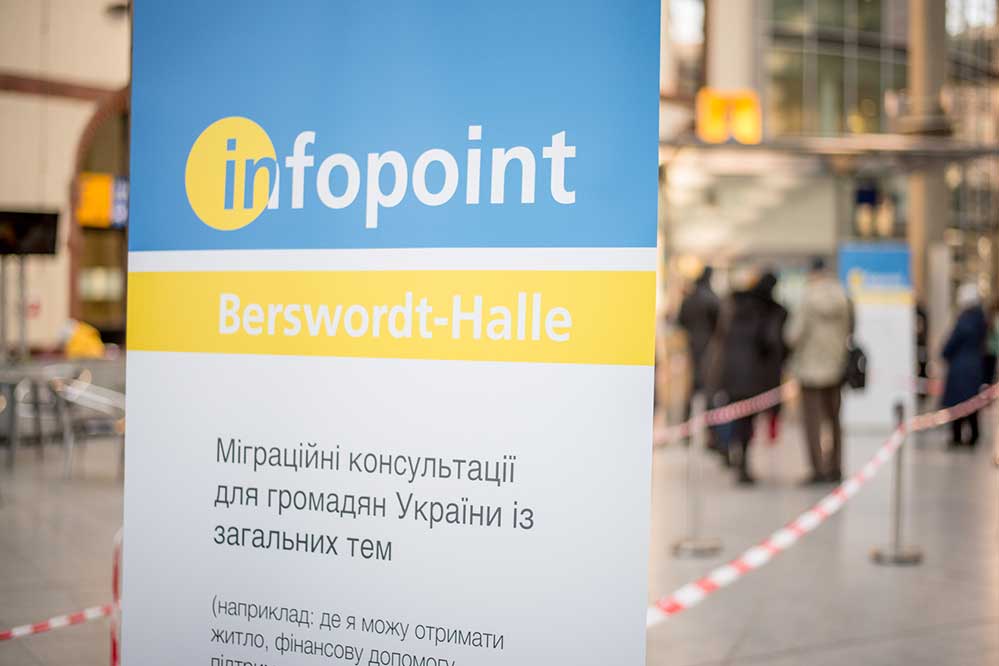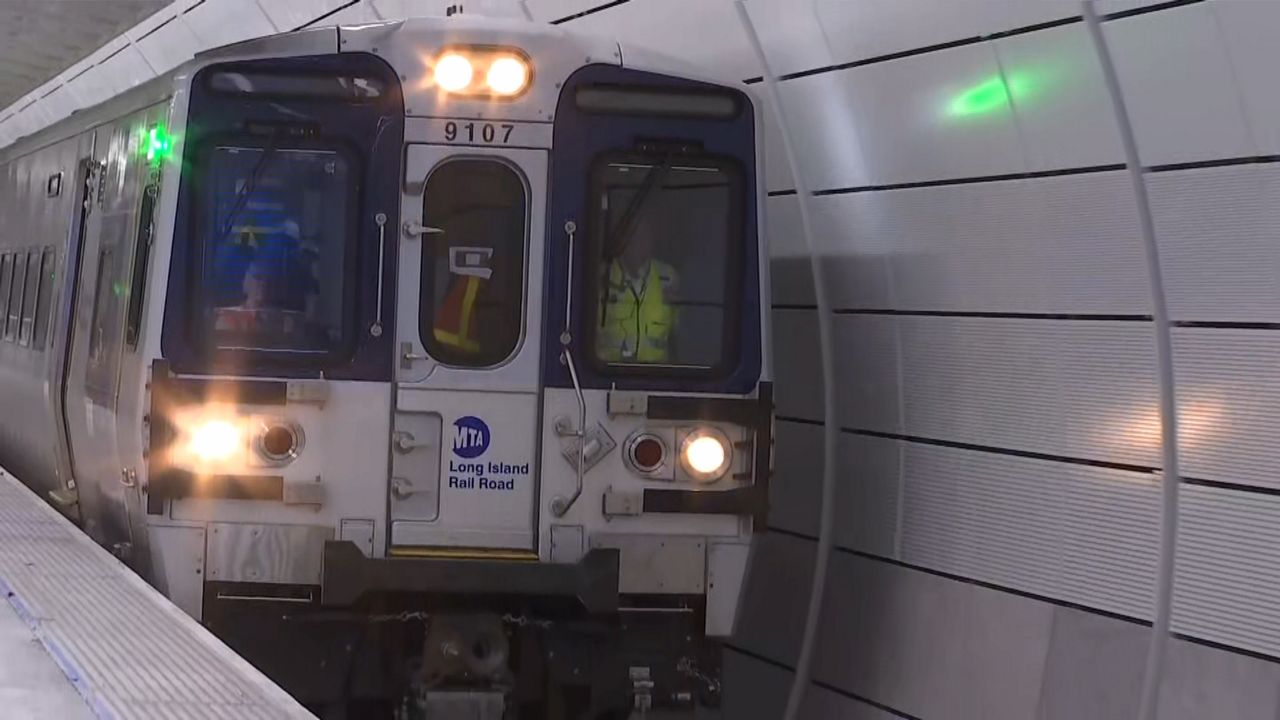Today, June 1st, is an important date for the Ukrainians in Dortmund: Because from now on, the social welfare office will no longer be responsible for the 6472 Ukrainians, but the job center will be responsible for them. The Prime Minister’s Conference had decided on this “change of law” with the federal government. This has very practical effects – and above all leads to more money for the refugees.
Conversion from the Asylum Seekers Benefits Act to “Hartz IV”
Because so far, the support for the Ukrainians, like for all refugees, was “only” granted under the Asylum Seekers Benefits Act. That means 364 euros in support for a single adult, explains Dr. Regine Schmalhorst, Managing Director of the Dortmund job center. Due to the change of responsibility to the job center, the amount increases to 449 euros – colloquially this is “Hartz IV”.
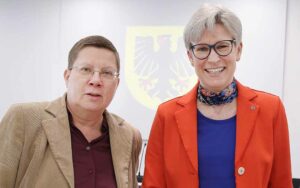
But there is also another important change: People who are subject to the Asylum Seekers Benefits Act only have a reduced right to medical care. “Not all services of the statutory health insurance are accessible to them,” adds Birgit Zoerner, head of the social and health department.
“Only acute illnesses are accepted, whatever that may mean in detail,” says Zoerner. The city has to pay for this – at least the first 30,000 euros in costs – only then does the state take over. From June 1st, people from the Ukraine can or must take out normal statutory health insurance.
To do this, however, they must first be transferred to the new legal system. In plain language: the job center is in principle responsible, but not immediately. Because for this you first need a registration under foreigner law by the Dortmund immigration office and the associated identification.
The necessary registration is stuck due to a bottleneck at the Federal Printing Office
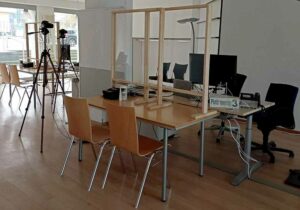
However, the authority cannot keep up with this because there are technical bottlenecks, which are not the responsibility of the municipality, but of the federal government or the Federal Printing Office. Of the 6,472 Ukrainians (as of Monday evening) who have so far contacted the social welfare office in Dortmund for assistance, only 3,400 have been registered so far.
Registration takes place at so-called “PIK stations”. The abbreviation stands for “Personalization Infrastructure Components” with which the responsible authorities record biographical and biometric data and thus register refugees.
On behalf of the Federal Ministry of the Interior and Community (BMI), Bundesdruckerei GmbH developed and delivered a system in 2015 with which the PIK stations are connected to the inventory systems of the federal government and the responsible states.
Delivery problems: Only 60 of 1100 “PIK stations” have been delivered so far
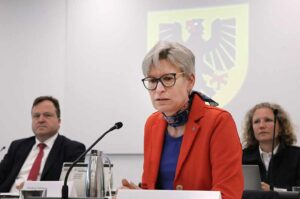
As planned, the city has only one such station, which was already working to capacity in day-to-day business before the Ukraine war. However, after an update initiated by the federal government, this device is no longer functional and the city has been waiting for two new devices for weeks, which are provided exclusively by the Bundesdruckerei.
But there is a huge bottleneck there: Since the Ukraine war, a total of 1,100 “PIK stations” have been requested nationwide, but only 60 have been delivered so far, Dortmund’s head of public order Norbert Dahmen describes the dilemma.
In order to be able to proceed with the registration at all, which is also a prerequisite for switching from the social welfare office to the job center, the city is dependent on support from the state. Already during the Easter holidays there were ten such “PIK stations” on loan, with which around 3000 refugees were registered. Now there are five devices for another week – again only on loan from the immigration office. “Everyone who can be registered is registered,” Dahmen makes it clear that it shouldn’t be up to his office.
The social welfare office, immigration authorities and job center work together in the Berswordthalle

Therefore, the transfer of responsibility from the social welfare office to the job center will be delayed or will take place gradually. The social welfare office, job center and immigration authorities have been working hand in hand on this process for weeks. A team from the job center was deployed in the branch of the social welfare office at Entenpoth in Hörde, which is responsible for looking after the Ukrainians.
There, the processes were interlocked to make the transition as smooth and noiseless as possible. The most obvious thing: at least for the newcomers, there will now be a seamless start. Because the social welfare office, immigration authorities and job center also sit together in the Berswordthalle, the municipal contact point for all newcomers.
Anyone who is currently calling for the first time can also get the registration immediately and apply for benefits at the job center and ask the social welfare office for help, such as housing. In addition, the aim is to register as many of the more than 3,000 people who are already here but not yet registered as possible before the city has to return the rental devices.
“We won’t let anyone down – everyone will get money consistently”
However, the refugees who have not yet been transferred to the job center need not worry. The increased rate, which you are entitled to from June 1st, will also be paid out retrospectively. However, Zoerner and Schmalhorst make it clear that an immediate changeover directly at the social welfare office so that people have more money in their pockets is not legally possible. These are different pots.

Incidentally, the conversion must take place by the end of August at the latest – that’s how long the federal government has given – if it can provide the necessary technical infrastructure. But one way or the other – nobody falls into the mountains: “Nobody has to worry about not getting any money. Payment is made either according to the Asylum Seekers Benefits Act or according to Book II of the Social Code. We won’t let anyone down – everyone will get money consistently,” promised Dr. Regina Schmalhorst.
For the job centers, the change means a tour de force because they get hundreds of thousands of new customers, but no additional staff. “We’ll do it with the staff we have. We’ll manage it well, even if things don’t go very quickly,” said the head of the Dortmund job center.
So far, the city has paid out more than 3.2 million euros in social benefits. There are also other costs, for example for accommodation or childcare. These costs have not yet been finally calculated. A corresponding (interim) report is to be submitted to the Council at the end of June. So far, 6,472 Ukrainians have approached the social welfare office for assistance. However, only around 400 people have currently made use of public accommodation.
